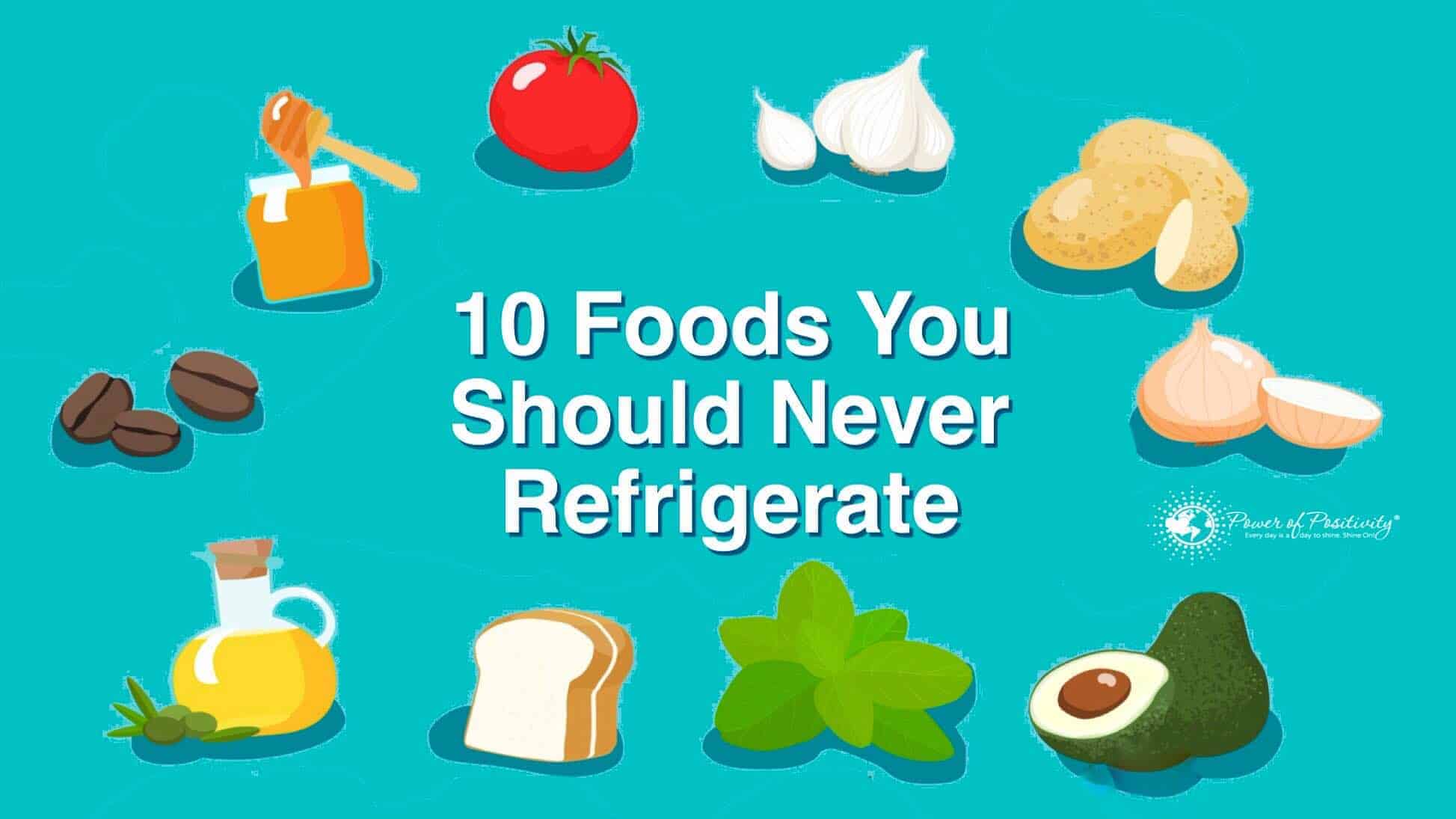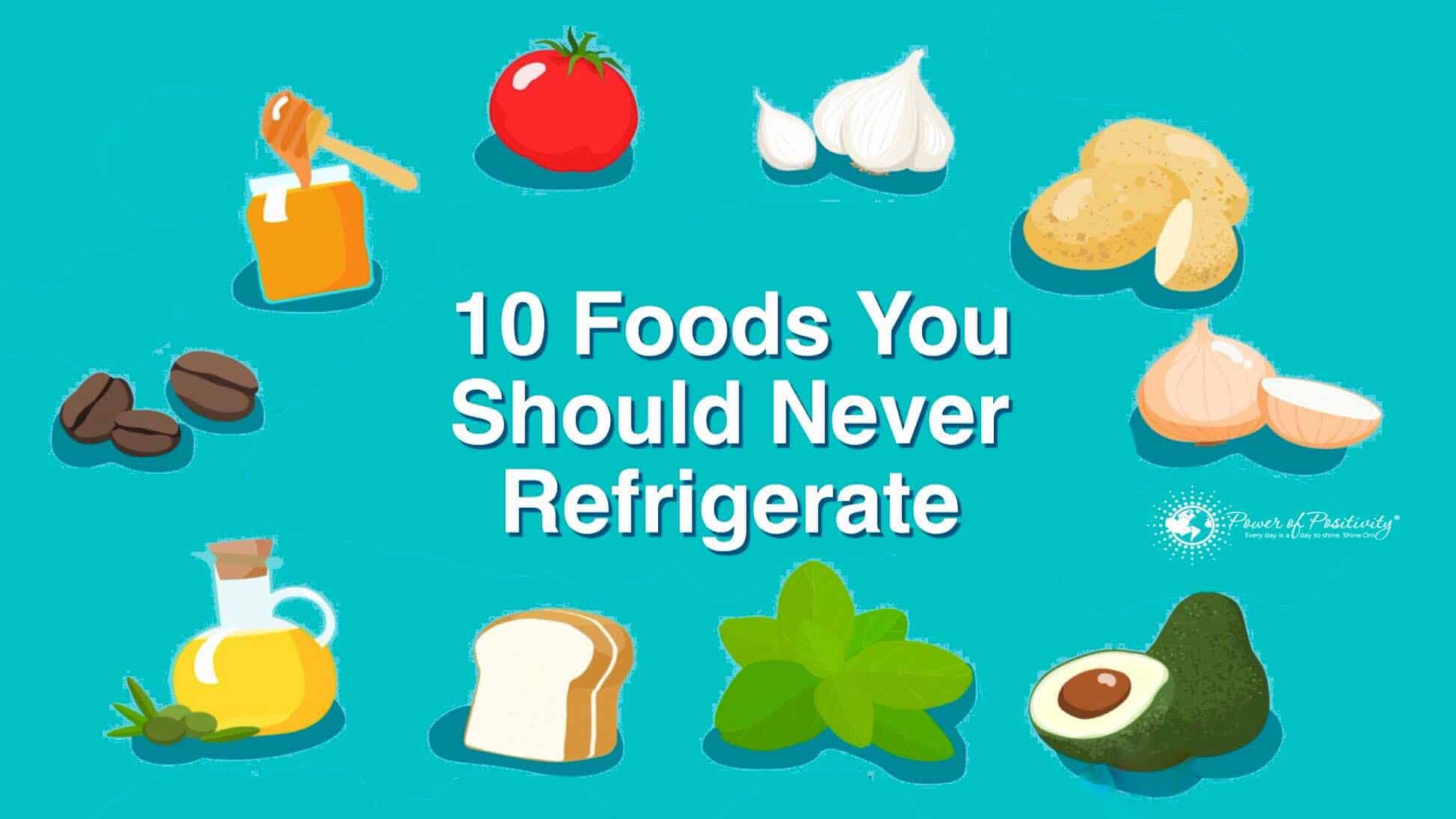When we bring home big and heavy bags of groceries, our first instinct is to just “put everything away.” Don’t be mistaken, this is a good idea when we bring home a bunch of perishable foods.
Often, we’re programmed to shove things into our refrigerator. This makes sense on some level – the refrigerator is the usually the biggest appliance in the kitchen, and storing things in it is relatively easy. In some ways, this is a good habit. For example, the sooner we refrigerate perishable foods such as milk, eggs, cheese, butter and meat, the better.
However, not all foods are meant to be refrigerated. In fact, refrigerating the foods on this list can result in a bunch of undesired effects: bland taste, alteration of texture, reduced freshness, and even rotting.
Here are 10 foods you should never refrigerate:
1. Honey
When you put honey in the fridge, you change its chemical makeup. In turn, you completely alter the texture. After a while, the honey will become crystallized, stiff, and thickened. Anyways, honey will stay good almost indefinitely when outside of the fridge. The best practice is to ensure that the product’s container remains tightly sealed.
2. Tomatoes
Tomatoes, when stored in the fridge, are exposed to cold air. When the cold air saturates the fruit, it halts the ripening process. Further, refrigeration alters the texture of the product and likely affects the tomato’s flavor. Simply put, store tomatoes outside of the refrigerator in their natural state.
3. Garlic
Garlic is another food that is commonly refrigerated under the false impression that it will enhance the lifespan of the product. Actually, the opposite is true – it shortens lifespan. Refrigeration also stunts the product’s flavor, can cause mold to grow and reduces the usability of the product. Instead, keep garlic stored loosely and make sure to consume any garlic within 10 days after the head is broken off.
4. Coffee
Many people refrigerate or freeze coffee, thinking that it keeps the product fresh. Actually, this does nothing for the preservation. Additionally, refrigeration alters the coffees taste because of condensation. The best way to store coffee is in a tightly sealed container in the pantry or on a shelf.
5. Olive Oil
The only type of oils that need to be refrigerated are nut-based oil products. When olive oil or another other type of oil is refrigerated, the product actually takes on an unnaturally thick texture. The oil also begins to appear murky and loses its consistency. In the future, simply leave olive oil (or any oil) on the shelf or in the pantry.
6. Bread
Bread is yet another product which people love to stick in the fridge. However, this doesn’t do much to extend the products usability. Also, refrigerating bread will quickly dry the product. It’s perfectly fine to refrigerate or freeze bread – it just reduces the quality of the breads flavor.
7. Basil
Basil is a food that is adept at absorbing the smells of its environment. When placed in a refrigerator, that’s exactly what happens. This may be a problem for some people, because most thoroughly enjoy the refreshing aroma of basil. Instead, store basil in a cup of fresh water outside of the fridge. Also, there are plenty of internet tips on how to freeze this product.
8. Avocado
When avocados are purchased ripe, there is no issue with refrigerating the product. However, cold air will stop avocadoes from ripening. Keep in mind that an avocado will last for up to about a week in the fridge after it ripens. Also, ensure that avocados are refrigerated whole, as the exposed interior of an avocado will brown quickly when exposed to cold temperatures.

9. Onion
It is important that onions remain in an area that allows for air to circulate – a refrigerator is not a viable option for this. Refrigeration of onions will make them soft and the cold temperatures can produce mold. The storage of onions is the same as potatoes – keep them in a dark and cool place in the home. Also, nix any idea of storing potatoes and onions together – this can cause each product to deteriorate faster when mixed together.
10. Potatoes
There is a common mistake that people make – storing potatoes in a cold place instead of a cool place…this makes a big difference. The starch of potatoes is more quickly converted to sugar in a colder environment, which reduces the lifecycle of the product. Instead, potatoes should be stored in a paper bag and the bag placed in a dark, cool spot in the home. This method of storage will slow the potatoes rate of deterioration. As mentioned above, do not store potatoes and onions together.


















